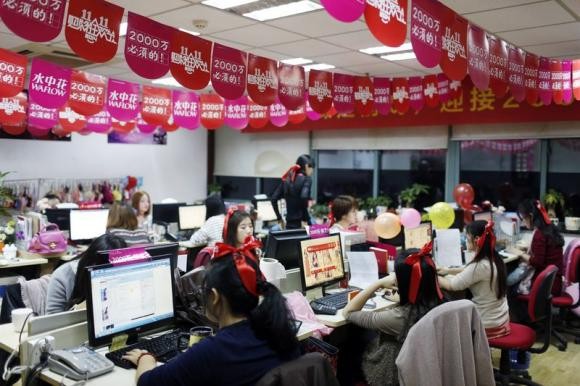The competition within China's "haitao" market, the indigenous term for the e-commerce trade, is only set to become more fierce in the future. However, the impact will not come from eager international businesspeople seeking to carve out a slice of a pie that, according to government estimates, will be valued at $1 trillion by 2016.
It is the actions of the Chinese government that have led to the emergence of rivals for the seemingly untouchable online monoliths that are under the corporate umbrellas of the Alibaba Group Holdings, JD.com Inc. and Tencent Holdings names.
Even Jeff Bezos' Amazon.com Inc. e-commerce entity will need to keep its eye on domestic competitors such as SF Express and the state-owned Sinotrans; the latter currently oversees 118 warehouses and scores of delivery stations throughout the country.
The Global Times managed to speak with the vice president of SF Express, who stated that "local e-commerce businesses aren't able to meet the needs of China's consumers who are increasingly buying from abroad."
It is not surprising that the online retail bug has spread inside of China's borders, as the data is compelling for anyone with a business frame of mind.
According to the figures released by state officials, over 2,000 firms have signed on to become cross-border e-commerce businesses since 2012.
Meanwhile, private consultant iResearch estimates that the gross merchandise value of cross-border e-commerce grew to 14.8 percent of China's total foreign trade over the course of last year, up from 11.9 percent in the previous year, and it will make up one-fifth of total foreign trade in two years' time.
Beijing's influence in the domestic e-commerce market has taken the form of policy changes that include tax-relief programs. Taking effect in 2014, the government policies have benefited smaller companies like Netease Inc., which jointly set up an online bazaar in January with Sinotrans.



























